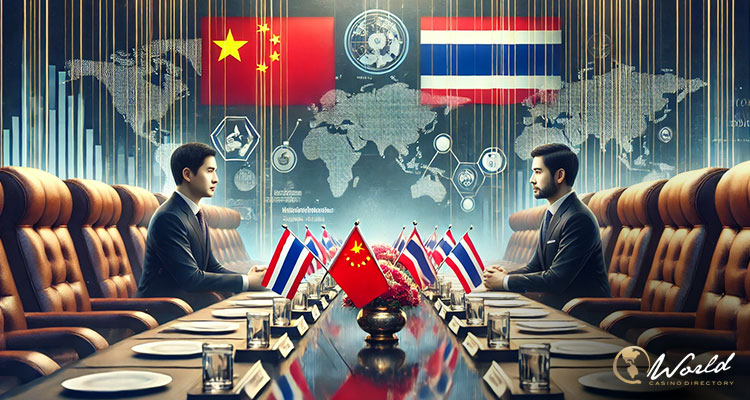During a critical discussion in Beijing last week with China’s President Xi Jinping, Thai Prime Minister Paetongtarn Shinawatra addressed the complexities surrounding Thailand’s proposed casino-entertainment complex. This ambitious project, which aims to encompass hotels, restaurants, and various entertainment venues with casinos occupying less than 10% of the total area, has stirred international attention due to potential risks and benefits.
Holistic development versus social risks: striking a balance:
Prime Minister Shinawatra explained the vision behind the complex to President Xi, emphasizing its role in boosting tourism and generating substantial tax revenue for national development, including education and infrastructure projects. However, President Xi expressed concerns, citing potential increases in criminal activities—a viewpoint grounded in China’s strict gambling regulations and experiences.
The Thai government, under the leadership of the Pheu Thai Party, advocates for the regulation and legalization of gambling facilities not only to curb illegal activities but also to harness a new revenue stream for the country. Currently, illicit gambling dens operate without contributing to the public coffers, a gap the proposed legislation aims to address.
According to Bangkok Post, Paetongtarn stated: “We have to admit that some illegal gambling dens are still operating in the country. The money changing hands in those gambling dens does not benefit the country. If they are legalised, revenue can be collected from them and used for national development projects.”
On January 13, the Thai Cabinet took a significant step by approving in principle the Entertainment Complex Bill. This bill, now under the Council of State’s review, sets stringent criteria for the operation of such complexes, including licensing for up to 30 years with rigorous assessments every five years. The proposed legislation also stipulates an entrance fee for Thai nationals, aiming to mitigate the social impact of gambling.
From diplomatic dialogues to legislative action: the path forward:
The discussions in Beijing reflect Thailand’s cautious approach, taking into account international experiences and diplomatic ties. Prime Minister Shinawatra acknowledged the insightful advice from President Xi, noting the need for thorough studies and public consensus before moving forward. This includes the possibility of a referendum, although the government currently deems it unnecessary due to prior parliamentary approval and the public mandate received by Pheu Thai during elections.
However, as Thai PBS World reports, the project has not been without its critics. A civil network has initiated a campaign to collect signatures for a referendum, indicating public desire for direct involvement in the decision-making process. Meanwhile, the Stop Gambling Foundation and other organizations have voiced concerns over the potential social ramifications of legalizing such complexes.
As Thailand navigates the intersection of economic aspirations and social responsibilities, the development of the casino-entertainment complex presents a unique challenge. The government’s commitment to a regulated and family-friendly model underscores its intent to position Thailand as a major player in the global tourism and entertainment industry while addressing the pitfalls commonly associated with gambling.
With further revisions to the bill expected by early next month and a final decision looming, the trajectory of Thailand’s entertainment and gaming industry hangs in balance, promising substantial economic benefits while posing significant regulatory and social challenges.


